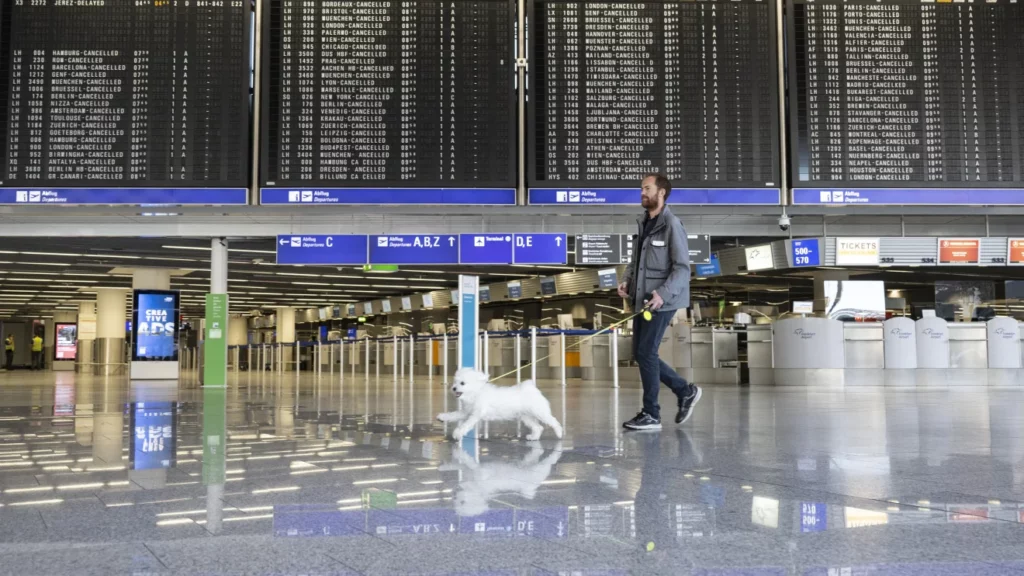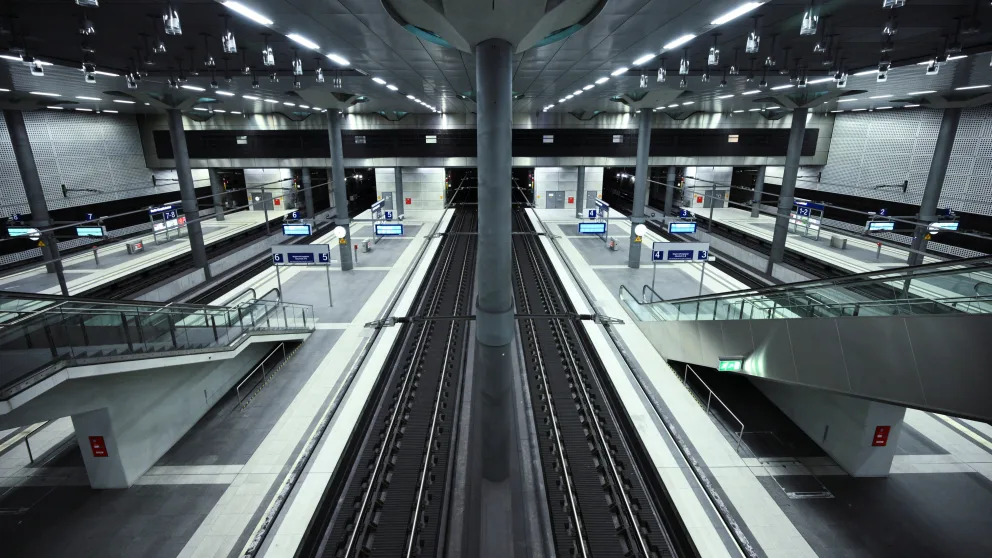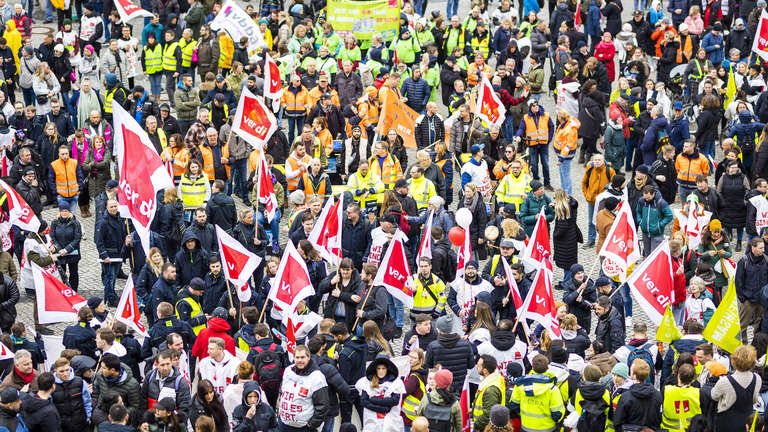Largest strike since the Nineties hits Germany
Trains, planes and public transit systems, like buses and metro, stood still across Germany on Monday, March 27. Unions called a major one-day strike over salaries, arguing to win inflation-busting raises for their members. Hence, disruption for millions of people was caused by one of the largest walkouts in decades. In Europe’s biggest economy sky-rocketing inflation stokes wage demands. Nonetheless the economic impact of Monday’s strike was limited so far. Additionally there are rumors that in negotiations on Monday the ‘Verdi’ union had already come quite close to the bosses offers. Media called the strike a show.

The 24-hour “warning” strikes called by the ‘Verdi’ union and railway and transport union ‘EVG’ were the latest of similar actions in the past months. Bosses have offered only 5% more wages over a period of 27 months. Proposals the unions, which are calling for a double digit rise, name unacceptable amid inflation which reached approximately 10% in February. Verdi is demanding a 10.5% wage increase, but at least 500 euros per month for everyone, while EVG is out for a 12% raise or at least 650 euros per month.
Worsening chronic labor shortages should give unions a strong negotiating position. This strike was the biggest in Germany since 1992, according to the unions.
However, these demands are too low if one considers that prices for food and soft-drinks have risen by more than 20 percent since February 2022. For electricity and gas, prices have increased by more than 30 percent compared to the previous year. The ten or twelve percent are puny and cannot compensate the price increases, which hits the poorest masses most hard.
Estimated 380,000 air passengers were affected by flight suspensions including two of Germany’s largest airports in Munich and Frankfurt, with stranded travelers sleeping on benches. In Frankfurt alone, almost 1,200 flights for 160,000 passengers were canceled.

Rail services were also canceled by railway operator Deutsche Bahn. “Millions of passengers who depend on buses and trains are suffering from this excessive, exaggerated strike,” a Deutsche Bahn spokesperson said. Hence, trying to discredit the justified actions of the workers, but proving the strength of the strike.

Verdi is negotiating on behalf of around 2.5 million workers in the public sector, including in public transport and at airports. The interior ministry said the demands were equivalent to extra costs of 1.4 billion euros per year – and if that wage agreement were extended to other public sector workers as well as retired civil servants, judges and soldiers, it would equal 4.7 billion euros in total. So, it is 5 billion euros that workers in the public sector lost by inflation only in the last year. Such wage increases shall squeeze the fiscal room for maneuver for German chancellor ‘The Mafioso’ Olaf Scholz’s government, making already fractious negotiations over the federal budget more difficult in his disrupted three-party coalition.
EVG negotiates for around 230,000 workers at Deutsche Bahn and bus companies. “The big ones benefit and the small ones, who keep everything running, get nothing,” said a striking worker, “People have second or third jobs to make ends meet.”
“Warning” strikes are regular in Germany and normally end in a ‘compromise’ in which the unions submit to the bosses and betray the workers. It is similar to the elections, it can only be bargained on the conditions, but not against exploitation in general. Anyway it is rare for unions to join forces like on Monday in Germany.

The head of the Confederation of German Employers’ Associations, said “Anyone who acts in this way is acting disproportionately and is endangering acceptance of the right to strike”. Of course, he does not answer the question who besides himself has a problem with the right to strike. At any rate, he cannot rely on surveys. They show that a large part of the population supports the strike. In general, it simply reads like a poorly disguised threat; in other words, either you comply or other means will be used.

